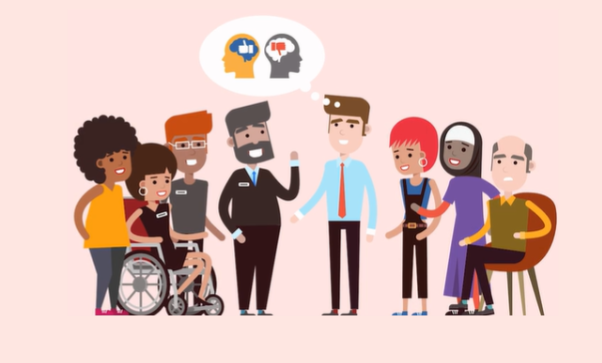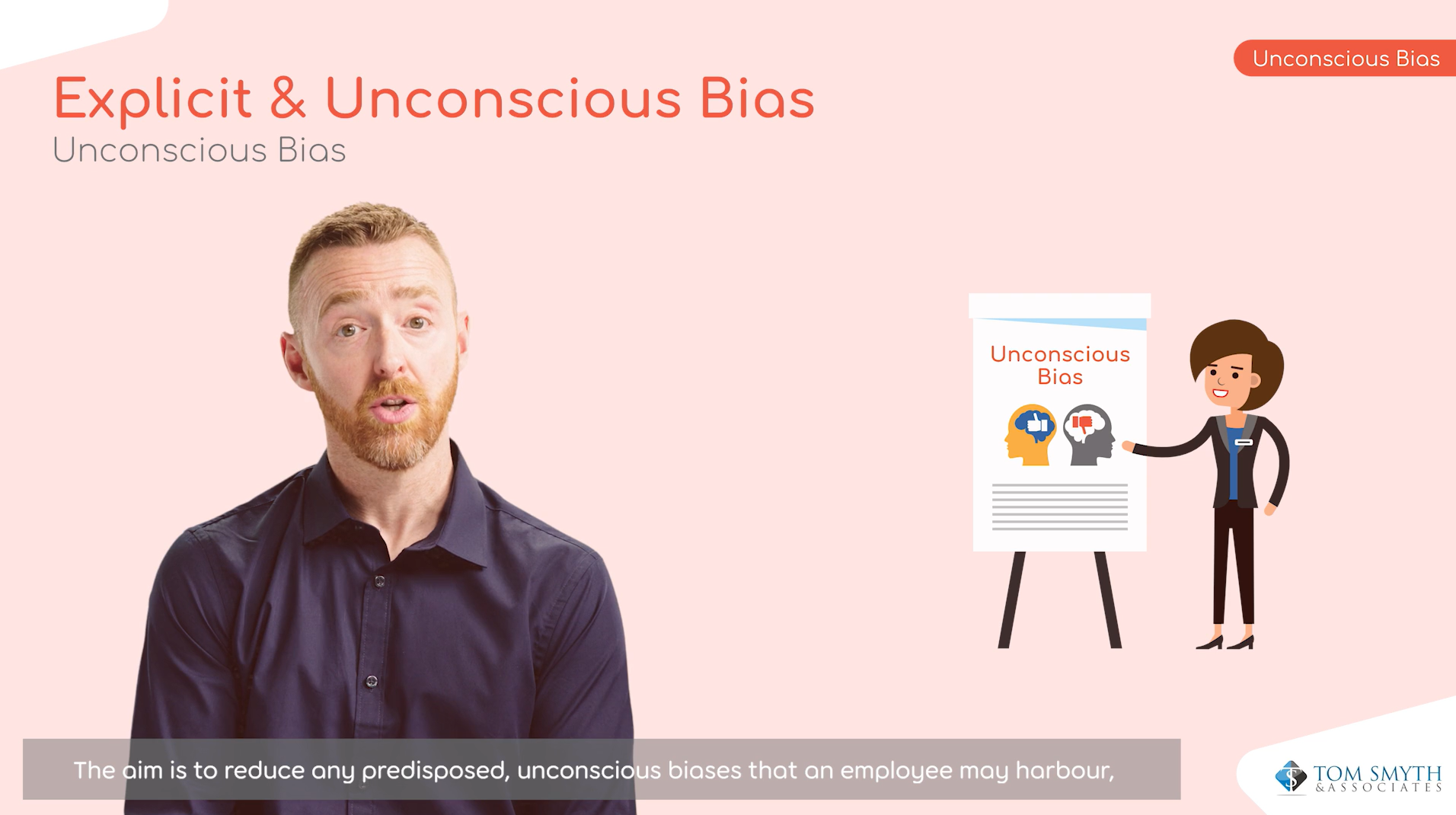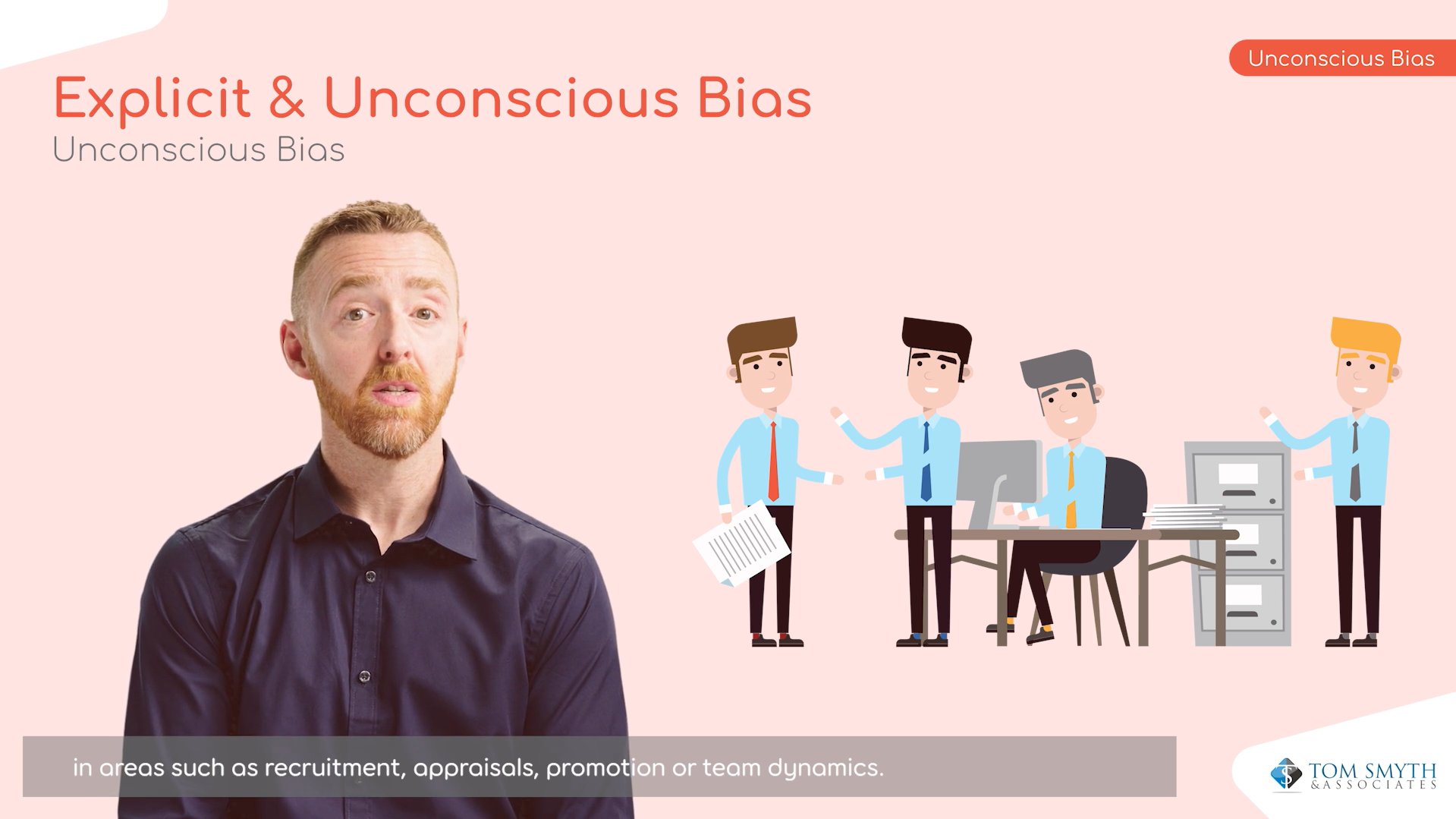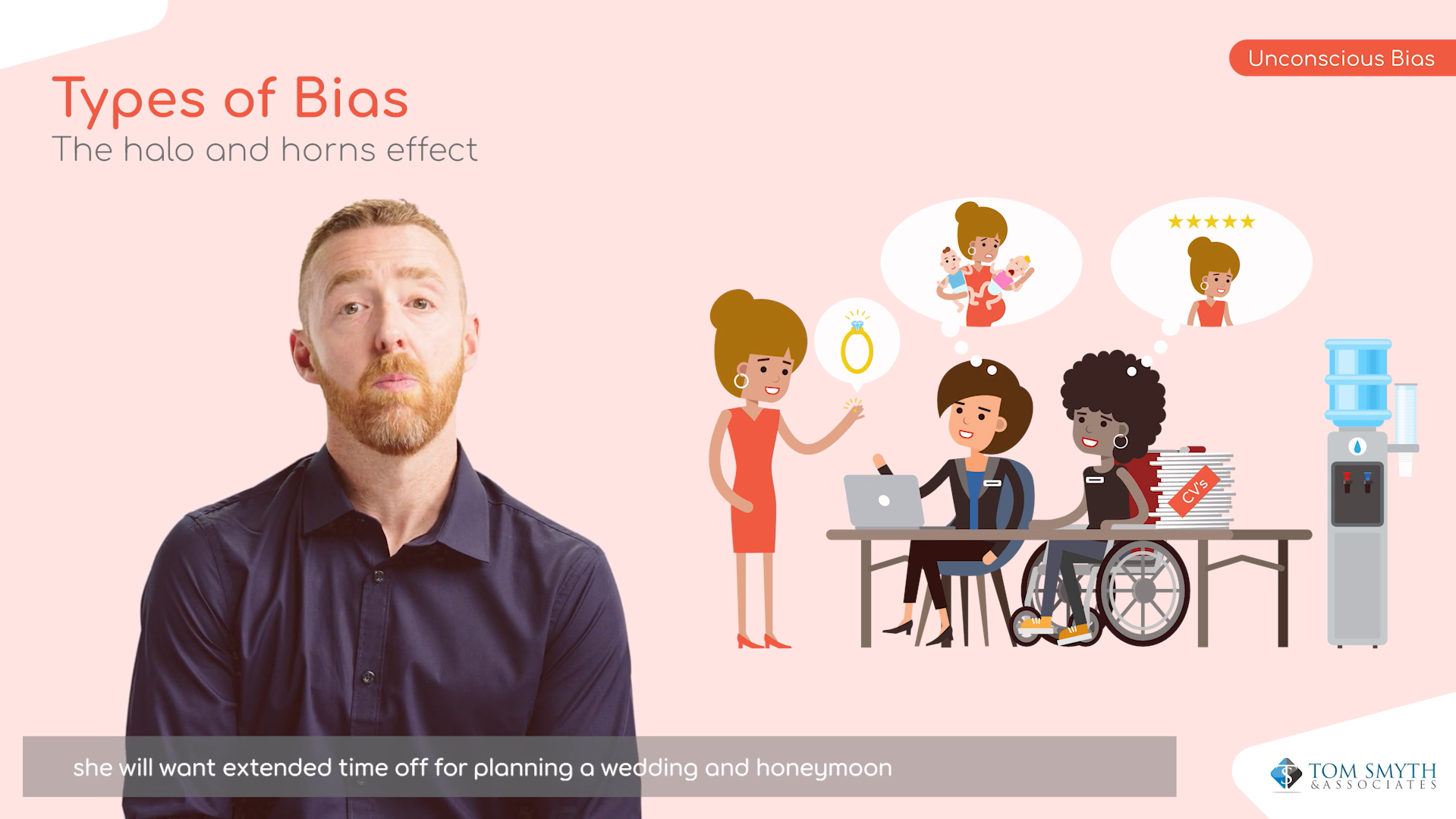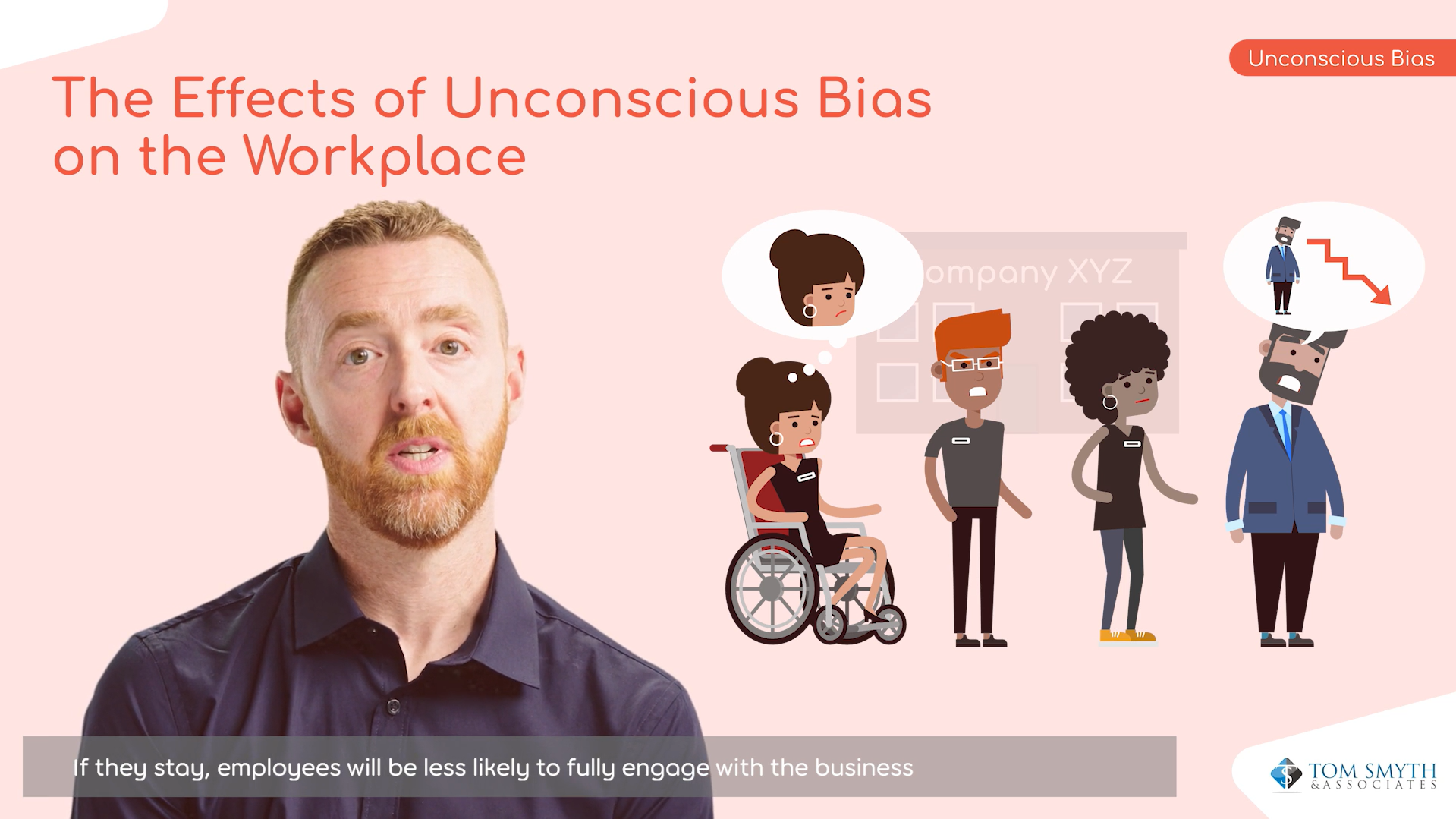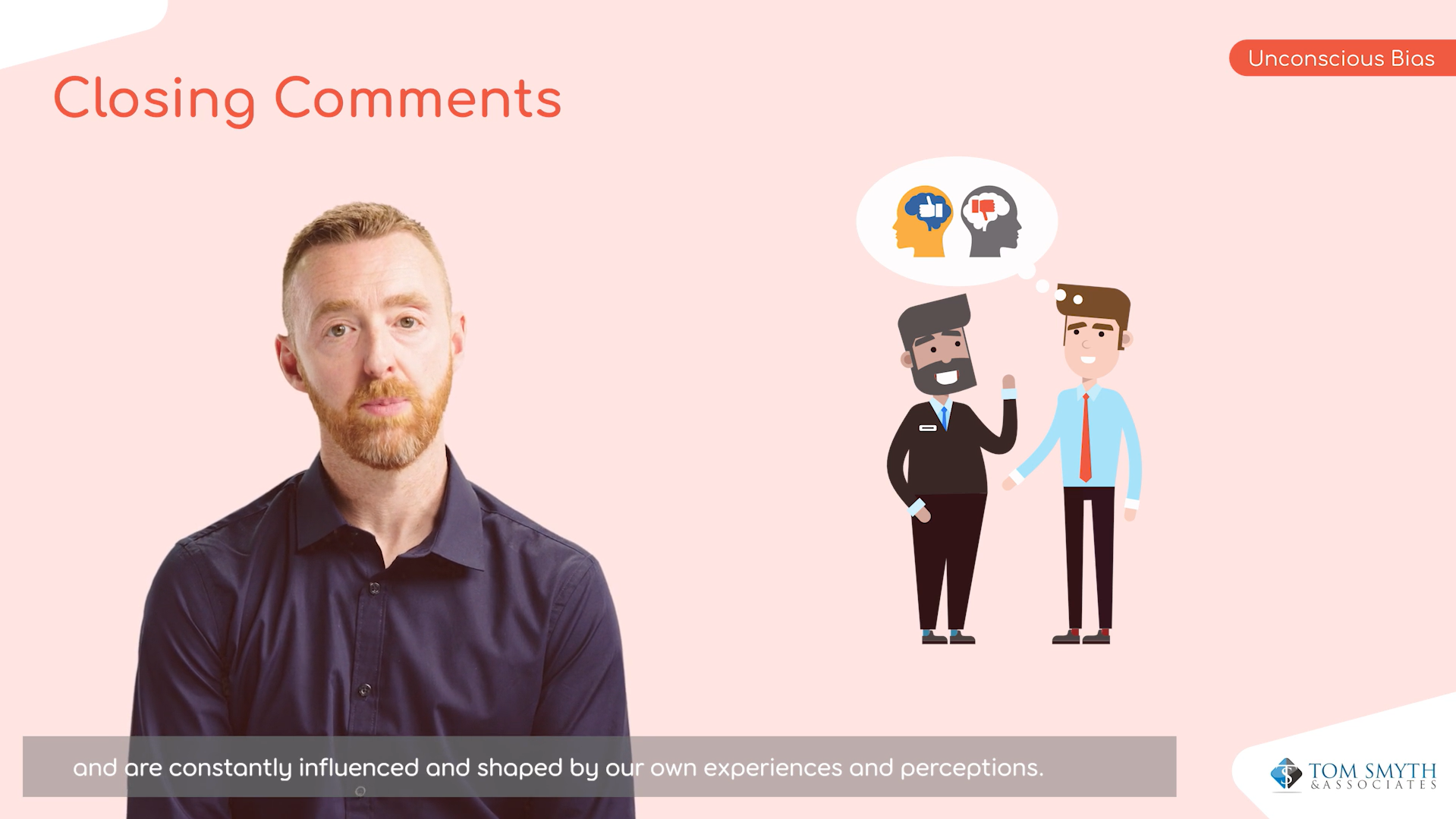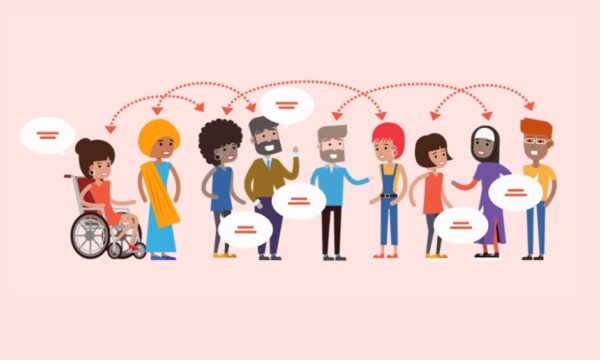What are the key areas of learning?
- Trainees will get a clear understanding of what Explicit and Unconscious Bias are and the differences between them.
- Different types of Bias are explored e.g. Similarity, Halo/Horns etc..
- Understand the impact of unconscious bias on workplace dynamics and decision-making.
- Learn about actionable strategies for individuals to recognise and mitigate their own biases.
- Recap the importance of addressing bias to foster a more inclusive work environment.
Who is this course for?
This course is for employers employees, managers, or any anyone looking to understand and address biases in the workplace to create a more inclusive environment.
Downloadable Supports:
This training course includes a downloadable quick reference guide to the essential concepts of Unconscious Bias, helping learners reinforce their understanding and easily recall important information.
Return on Investment:
- Employees develop a heightened awareness of unconscious biases and their influence on workplace interactions, fostering more respectful and inclusive behaviours.
- Personal biases are identified and actively addressed, leading to fairer, more objective decision-making in daily tasks, teamwork, and leadership.
- A more inclusive work environment is cultivated, strengthening trust, psychological safety, and a sense of belonging among employees.
- Team collaboration and communication improve as diverse perspectives are embraced, reducing misunderstandings and enhancing overall workplace harmony.
- Managers gain the tools to recognise and mitigate bias in recruitment, performance evaluations, and leadership decisions, ensuring fairer opportunities for all employees.
- The organisation benefits from a stronger reputation as an inclusive employer, attracting top talent and reducing turnover by fostering a diverse and welcoming workplace.
- Increased innovation and problem-solving emerge as diverse viewpoints are valued, leading to fresh ideas, better decision-making, and improved business outcomes.

